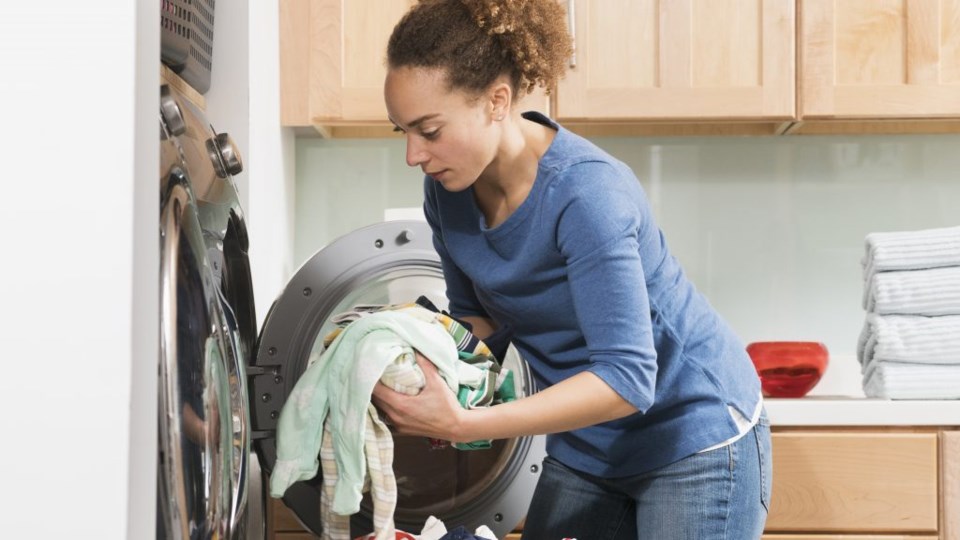Medical professionals say handwashing and social distancing are some of the best ways to protect yourself and others from COVID-19, the illness caused by the novel coronavirus.
But can the virus live on clothing and fabrics?
According to Dr. Michael Gardam, an infectious disease physician and chief of staff at Toronto’s Humber River Hospital, most people shouldn’t be overly concerned about immediately washing clothing worn outside. But if it brings you peace, it’s good practice to do so.
“I don’t think the clothing you’re walking around with on a regular basis is going to be a big cause of concern,” Gardam said.
“That being said, I can’t absolutely prove that [people] could never get infected through contaminated clothing.
“My advice to people is that I don’t think it’s a big deal, but if this is something that bothers you, then do something about it.”
Healthcare workers and those who are still working for essential businesses, however, could be an exception, Gardam said. They may worry about bringing the virus home to their family if an item they were wearing or using in the hospital became contaminated.
For people working in high-risk environments, Gardam recommends washing clothing as soon as you get home, and wearing comfortable clothes to work that can be cleaned easily.
“Don’t wear ties — you can’t wash ties.”
“They’ve been associated with other hospital outbreaks in the past because ties are just a piece of clothing that never get washed and can get contaminated,” Gardam said.
Dr. Craig Janes, director of the School of Public Health and Health Systems at the University of Waterloo, echoes Gardam’s stance, and said people shouldn’t be overly concerned with outdoor clothing.
“If items haven’t been touched or handled by others outside of the household, then there should not be any need to wash them down,” Janes said.
For mail or packages that are delivered, the precautionary rule would be to unpack these (while not touching your face), dispose of the packaging, then wash your hands thoroughly, he said.
Janes said it’s still best to avoid touching surfaces that others have recently touched, however, like door handles, elevator buttons or grocery carts. If you do need to touch them, wash your hands after.
How does COVID-19 spread?
As of March 25, there are 2,851 confirmed cases of COVID-19 in Canada, according to Health Canada and provincial health officials. One hundred and eighty-five people have recovered, and 29 have died.
This novel coronavirus infects the lungs, throat and nose, and can spread in two different ways, Nancy Walton, a professor and director of the Daphne Cockwell School of Nursing at Ryerson University, previously told Global News.
The first is through droplet transmission from someone who is infected.
“One is through being close to someone, and they’re coughing or sneezing on you, and a droplet gets around your eyes, mouth or nose,” Walton said.
“Or droplets get on your hands, and you then touch your eyes, mouth or nose.”
Another way COVID-19 can spread is through surface contact, Walton said.
When someone with coronavirus sneezes or coughs, the droplets can fall onto a surrounding surface. When you are sharing food in a restaurant, for example, the droplets can get on the food, plate, cutlery or table.
If you touch that contaminated surface then touch your mouth, nose or eyes, you can get COVID-19.
What about other surfaces?
Even though droplet transmission is known to be the main way for COVID-19 to spread, a new study by the National Institute of Allergy and Infectious Diseases published on March 17 suggests that the virus can remain on surfaces for days.
The virus was viable after three days on plastic and stainless steel, and less than a day on cardboard.
While experts are still learning and much is unknown about COVID-19, Gardam said Canadians shouldn’t panic about grocery items being contaminated.
“We do not have good evidence about how long this coronavirus can live on surfaces in ‘real life’ contexts,” Janes said.
“The data we have comes from laboratory settings, and it appears from these that the virus can live for up to a couple of days on hard surfaces…but it has been suggested that it is more difficult to pick up viruses from these surfaces through handling.”
But if it brings you peace of mind, Gardam said you can wipe down grocery items, like plastic peanut butter containers or jars, to be extra safe.
Of all the safety precautions you can take to protect yourself and others from the coronavirus outbreak, though, Janes said you should prioritize frequent handwashing, avoid touching your face and regularly cleaning surfaces.
“Physical/social distancing is our best (and only) tool at this point,” he said.
Questions about COVID-19? Here are some things you need to know:
Health officials caution against all international travel. Returning travellers are asked to self-isolate for 14 days in case they develop symptoms and to prevent spreading the virus to others.
Symptoms can include fever, cough and difficulty breathing — very similar to a cold or flu. Some people can develop a more severe illness. People most at risk of this include older adults and people with severe chronic medical conditions like heart, lung or kidney disease. If you develop symptoms, contact public health authorities.
To prevent the virus from spreading, experts recommend frequent handwashing and coughing into your sleeve. They also recommend minimizing contact with others, staying home as much as possible and maintaining a distance of two metres from other people if you go out.
For full COVID-19 coverage from Global News, click here.
–With files from Reuters and Arti Patel
Follow @AmandaPopetv- Global News



